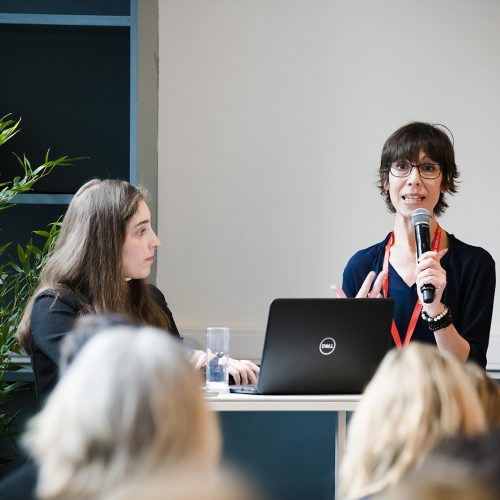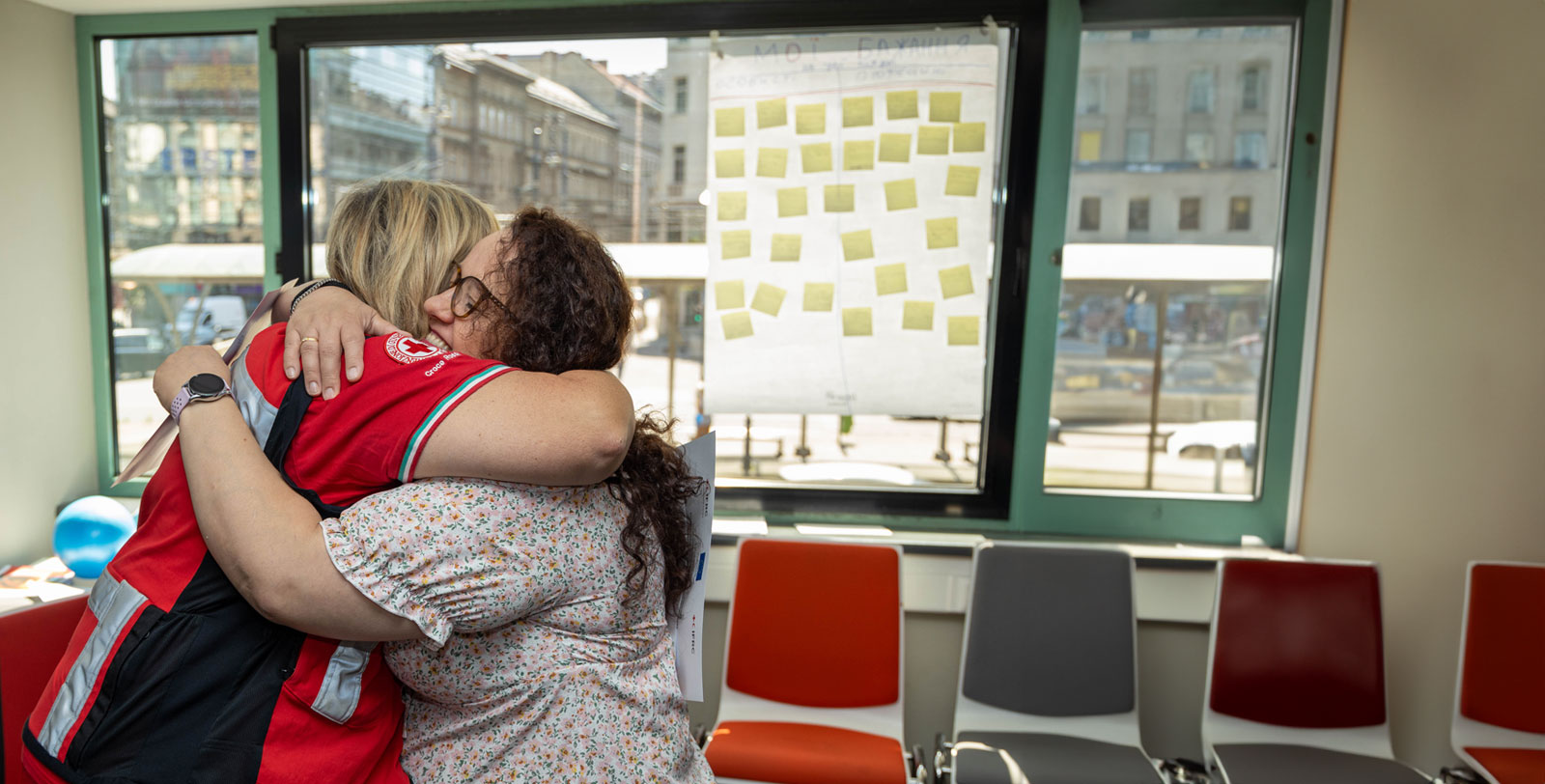

Mental Health and Psychosocial Support (MHPSS) and Restoring Family Links (RFL) training
The MHPSS RFL training is an in-person training for MHPSS and/or RFL focal points in the Red Cross Red Crescent national societies as well as for participants from other humanitarian organisations. We do not accept applications from private individuals.
About the training:
Not knowing the fate of family members and loved ones causes great suffering to many people throughout the world. Not knowing the fate of one’s family can ultimately lead to years of anguish. In emergencies, the need to know where and how relatives are – if they have survived, if they need help – is important. Beyond the immediate needs in the acute phase of an emergency, the psychological, physical, and social recovery of individuals and communities depends heavily on the family. For the majority of the affected, belonging to a caring family is perhaps the most essential coping mechanism of all.
Staff and volunteers are faced with people in dire need of support because they have been separated from their families. Providing them with psychosocial support is crucial and helping them to restore contact or find out the whereabouts of their family members will contribute immensely to their psychological well-being. As to the RFL colleagues, they will deal with RFL cases, i.e., trying to trace what has happened and restore contact to reunite loved ones.
The training is divided into two parts: 2.5 days of learning and 2.5 days of practice. It is highly interactive with practical exercises, illustrative case studies, and role-plays. In practice, participants will prepare and conduct a short session in preparation for the plan to replicate the training sessions in their NSs. From sustainability perspectives, we recommend having one MHPSS and one RFL practitioner from each National Society.
The following thematic issues are put forward for your consideration. During the training because of timing constraints, only up to six themes will be developed and we hope to choose these themes according to your needs.
The following topics will be covered:
- Integrating MHPSS and RFL work
- Understanding the psychosocial impact of the migratory experience
- Adapting MHPSS concepts in different cultural settings
- Collecting sensitive information through existing tools (Tracing Requests – TCs)
- Handling frustration during the timeline of the request
- Building trust and nurturing a long-term relationship with affected families
- Announcing difficult news
- Dealing with ambiguous loss and commemorative rituals
- Psychologically supporting reunified families
- Talking with a minor (separated child)
- Conducting an interview with an interpreter: what needs to be considered.
- Active listening and how to provide support during data collection.
- How to deal with out-of-criteria requests?
- Self-care for RFL caseworkers such as maintaining professional boundaries.
The training is highly interactive and problem-based with practical exercises, group work, role plays, and case studies. Participants must be fluent in written and oral English to be able to engage actively in the course, which is a requirement to pass the training successfully.
Participants will receive a certificate based on whether they have:
- Read the required pre-reading
- Prepared and conducted a session
- Attended at least 80 percent of the training
- Participated actively during the training.
For questions, please write to psacademy@rodekors.dk
Participants are expected to:
- Have a high level of knowledge in Restoring/ Protecting Family Links
- Have knowledge of the MHPSS impact and consequences of emergencies, stress, and coping
- Actively participate in all sections and tasks related to the training
- Have a background in education, social work, psychology, psychiatry, mental or public health, humanitarian or developmental sciences, or similar fields
Required pre-reading and online training:
- Restoring Family Links (RFL) & Psychosocial Support (PSS) – Module 1: in Emergencies (English) (csod.com) (IFRC, 2022)
- Ambiguous Loss & practitioners self-care (csod.com)
- Supporting people with missing family members – PS Centre
- When a family member is missing – PS Centre
Participants should be familiar with the generic resources:
- Guide-on-MHPSS-in-migration-and-displacement_DRC.pdf (pscentre.org)
- shop.icrc.org/guidelines-on-mental-health-and-psychosocial-support-print-en.html
- Orientation bundle: Psychological First Aid in times of conflict and uncertainty – PS Centre
Dates: The training takes place in Copenhagen from 27 to 31 May 2024. Each day of the training will be from 09.00-17.00 hrs CEST.
Participants must be able to participate in the entire training, arriving the night before and departing from the training venue no earlier than 5 pm on the last day of training with the earliest possible flight out of Copenhagen at 8 pm.
Venue: Danish Red Cross HQ, Dunant room 2nd floor, Blegdamsvej 27, 2100 Copenhagen, Denmark
Deadline for application: Friday 15 March 2024.
Cost: There is no training fee. Participants cover their own expenses for travel, accommodation, and other expenses. Lunch, snacks, training material, and one social dinner will be provided during the training.
The training is free for participants from the Red Cross and Red Crescent Movement as well as for participants outside the Red Cross Red Crescent Movement.
Please note that for your application to be considered, you must have answered all the questions as part of the online application system (see the blue “Apply” tab further up on the page).
VISA: Please identify the specific visa requirements to Denmark: New to Denmark – You want to apply. Please note, that should an entry visa be needed, the IFRC PS Centre will be happy to supply invitation letters used in the application process for a visa for Denmark.
Organizer
IFRC Psychosocial Centre
Date
- May 27 - 31 2024
- Expired!
Time
- All Day
Location
- Danish Red Cross Headquarters
- Blegdamsvej 27, 2100 København Ø
Related Events


